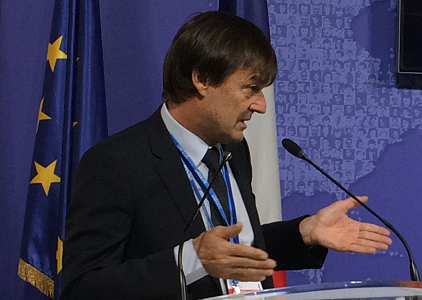
Mr. Nicolas Hulot, the French Minister for Ecology, called for increased support to the Climate Risk and Early Warning Systems initiative at COP23
Geneva, 16 November 2017 - Vulnerable communities in Africa, the Pacific and Caribbean are now benefiting from improved early warning systems against extreme weather as part of an international drive to boost resilience and climate change adaptation.
According to the World Meteorological Organization (WMO) over 80 percent of the world’s 48 Least Developed Countries and many small island developing States have only a basic early warning system. Weather observation networks are inadequate in many African countries.
A ministerial event at the United Nations climate change conference, COP23, yesterday was presented with the first results from the Climate Risk and Early Warning Systems (CREWS) initiative launched by the French government at the Paris Agreement negotiations in 2015.
CREWS aims to mobilize US$100 million by 2020 and is designed to achieve a key target of the Sendai Framework for Disaster Risk Reduction, the global plan for reducing disaster losses, namely to “substantially increase the availability of and access to multi-hazard early warning systems and disaster risk information and assessments to people by 2030.”
“In the Paris Agreement era, it is unacceptable that populations are not forewarned of an impending weather disaster. Let us now reinforce support for CREWS, launched in Paris at COP21, to enable the most vulnerable to benefit from effective early warning systems,” said Mr. Nicolas Hulot, the French Minister for Ecology.